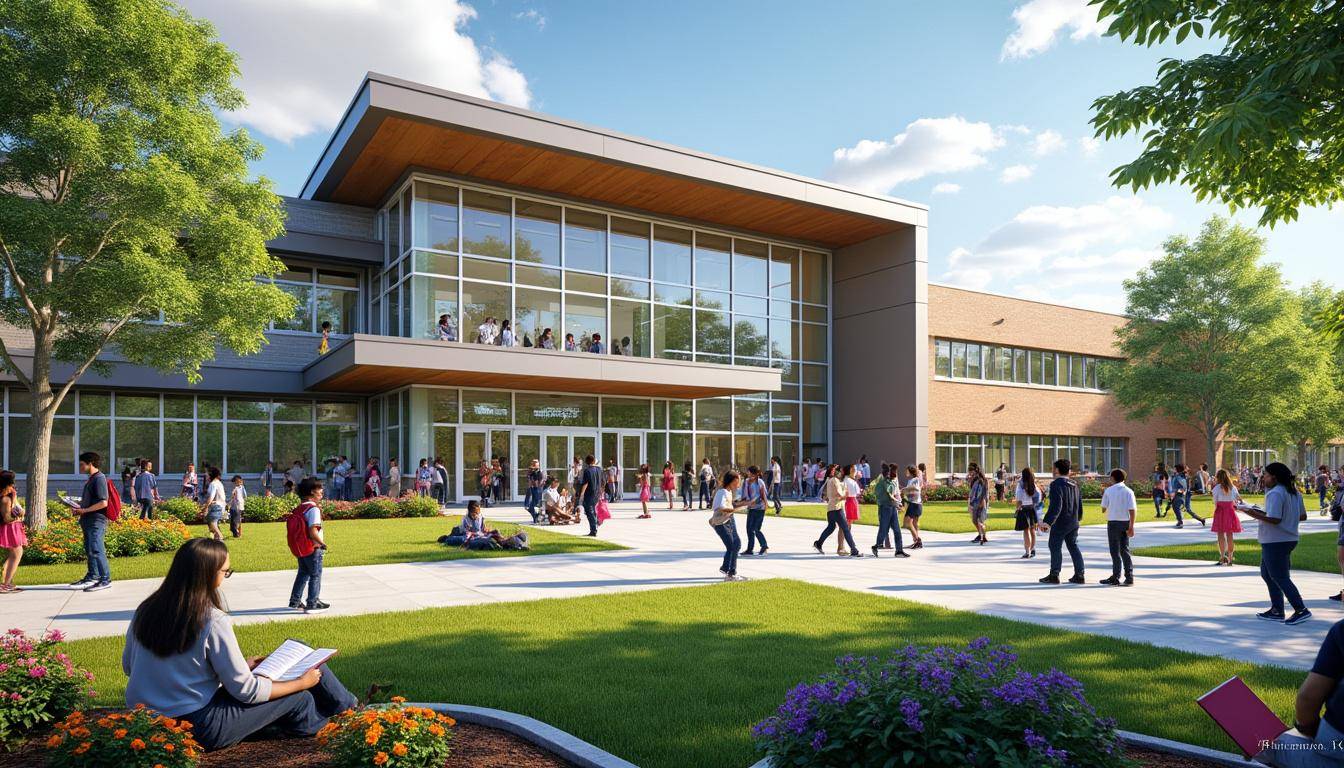The MetroWest area of Massachusetts is stepping into a new chapter of faith-based education with the upcoming opening of Chesterton Academy of the Immaculata in Framingham. This initiative reflects a growing demand among families seeking private school options that emphasize holistic development and moral values in addition to academic excellence. As public school enrollments fluctuate, Catholic education offers an engaging alternative where student community and religious studies fuse to nurture intellect and character.
Chesterton Academy of the Immaculata: A Milestone in Framingham’s Private Catholic Education
The Chesterton Academy of the Immaculata is preparing to welcome its inaugural class, marking a significant school opening in Framingham. This institution is part of a broader Chesterton Schools Network that began in Minnesota over 15 years ago and now comprises nearly 70 locations worldwide, including recent expansions in Rhode Island and upcoming schools in Connecticut.
- Focus on Catholic Education: Rooted in faith-based learning, the academy’s curriculum intertwines religious studies with rigorous academic content.
- Classical Curriculum: Students engage deeply with the Western canon, reading authors such as Homer, Shakespeare, and Dickens.
- Emphasis on Virtue and Character: The network aims to cultivate moral values alongside intellectual growth, a hallmark tradition of Catholic schools.
- Small and Nurturing Environment: With expected enrollment around 10 to 15 students, individual attention is prioritized over large class dynamics.
Nathalie Calvo, co-founder and board chair, emphasizes the network’s unique approach of empowering parents to be architects of their children’s education, transcending mere standardized testing to foster a lifelong love of learning and virtue development.
Addressing the Need for Holistic Development Through Catholic Education
In recent decades, Massachusetts has seen a decline in parochial and private school enrollment, dropping from 13% to approximately 7% of students statewide. The Framingham area specifically experienced the closure of its last coeducational Catholic high school seven years ago, leaving a gap in faith-based private education.
- Holistic Development: Beyond academics, Chesterton prioritizes the growth of the whole person—intellectually, morally, and socially.
- Faith and Learning Integration: Religious studies remain a cornerstone, supporting the development of a grounded moral compass.
- Community Building: Programs such as choir and “house days” encourage collaboration, fun, and social responsibility among students.
- Affordability: At $10,500 tuition, the school aims to be a financially accessible option compared to other area private schools.
Headmaster Ed Caughlan highlights how the school’s size fosters a supportive community where students are known by name, minimizing issues such as bullying and social alienation commonly found in larger institutions.
Empowering Parents and Enriching Student Experiences in Faith-Based Learning
The Chesterton Schools Network’s growth reflects a nationwide trend toward increased parental involvement in education, especially in faith-based environments. Parents in Framingham played a pivotal role in establishing the school, selecting leadership and contributing through fundraising and organizational efforts.
- Parental Rights in Education: Families seek active roles in shaping curricula aligning with moral and religious values. Learn more about this movement here.
- Faith’s Central Role: Catholic education continues to be a vital means by which religious heritage is transmitted to younger generations. Insights on the Church’s impact on education can be found here.
- Addressing Contemporary Challenges: With societal shifts and debates around educational content, parents increasingly seek alternatives that reflect their values. For example, some parents have withdrawn students from controversial lessons as detailed here.
- Community Engagement: Interactive activities and “house days” reinforce bonds among students and facilitate a cooperative learning atmosphere.
This collaborative model strengthens not only individual growth but also builds a student community cohesive in faith and academic pursuit.
Curriculum and Culture Reflecting Academic Excellence and Moral Values
Chesterton Academy’s curriculum embodies the essence of academic excellence intertwined with moral education, inspiring students to explore classical literature and develop critical thinking skills within a faith-based framework.
- Literary Foundations: Study of canonical texts encourages deep comprehension and appreciation of Western intellectual heritage.
- Artistic Engagement: Mandatory choir cultivates artistic expression and fosters community spirit.
- Virtue-Centered Education: Programs designed to nurture virtues such as responsibility, compassion, and integrity.
- Personalized Attention: Smaller class sizes allow educators to tailor instruction and mentorship to individual student needs.
Head of School Ed Caughlan remarks that the school’s distinct environment offers a positive alternative to mainstream high schools, enriching students’ educational journeys while supporting their holistic development.


